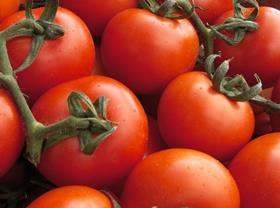
Israeli officials have announced plans to resume purchases of some fruit and vegetables from the Gaza Strip next week, a move welcomed by the director of the Gaza Vegetable Production and Export Association, Jamal Abu al-Naja, according to a report from Reuters.
This would be the first time that Gazan produce has been exported to Israel since the election of Hamas in 2007, the subsequent fight for control between Hamas and Fatah, and Israel's subsequent siege of the Palestinian territory.
Officials stated that the measure would aid a Gazan economy that has been devastated by last year's seven-week bombing campaign by Israel, which left the city in ruins and was responsible for the deaths of over 2,000 Gazans, a quarter of them children.
They also revealed that the volumes would help to make up for shortfalls from Israeli farms left fallow during the present Jewish lunar calendar year.
Abu al-Naja expressed hope that the resumption of trade would encourage farmers to seek funding from banks to expand production.
Since the closure of the Israeli market in 2007, many Palestinian farmers reportedly stopped cultivating or sold their land to housing developers.
More recently, however, Israel, facing considerable international pressure, has started to ease its blockade on Gaza, relaxing restrictions on commerce, allowing the transit of Gazan vegetables to the occupied West Bank and permitting Gazan farmers to bring tractors into the territory from Israel.
Cogat, the coordinator of Israeli government activities in the territories, revealed that a shipment of tomatoes and aubergines would be brought in from Gaza on Sunday.
'Future stages are expected to include a wider variety of vegetables, totalling 1,000-1,500 tonnes,' Cogat stated. 'Each tonne is valued at approximately ILS3,000 (€675).'
Cogat added that imports were scheduled to last for the duration of the Jewish calendar year, which ends in September.
Abu al-Naja revealed that the Israeli authorities had already carried out quality tests on tomato, aubergine, cucumber and courgette samples.
'If implemented, it will help farmers make up for their losses, increase the number of workers and encourage investment in the agricultural sector,' he told Reuters.



